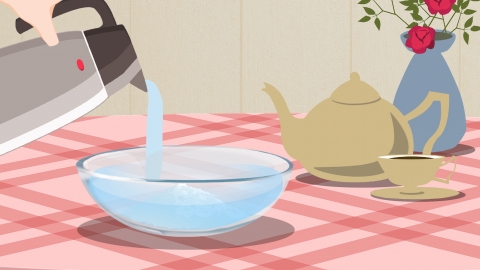Why is self-administered oral hydration not recommended for heatstroke?
Patients with heatstroke are advised to avoid drinking water independently, as it may generally cause complications such as coughing, aspiration, worsening of electrolyte imbalance, increased cardiac workload, gastrointestinal dysfunction, and reduced heat dissipation efficiency. If any abnormalities occur, prompt medical attention is recommended. Detailed explanations are as follows:

1. Possible induction of coughing and aspiration: Patients with heatstroke often experience impaired consciousness, and uncoordinated swallowing during self-hydration may allow water to enter the trachea, causing coughing, or even suffocation, which can threaten life safety.
2. Worsening of electrolyte imbalance: Excessive sweating has already caused loss of electrolytes such as sodium and potassium. Drinking plain water independently further dilutes the remaining electrolytes in the body, disrupting the balance and exacerbating symptoms such as muscle cramps.
3. Increased cardiac workload: Fever places the heart in a stressed state. Self-administering large amounts of water rapidly increases blood volume,加重 cardiac load, potentially inducing arrhythmia, heart failure, and other serious complications.
4. Interference with gastrointestinal function: Heatstroke may cause congestion and edema of gastrointestinal mucosa. Self-hydration can irritate the gastrointestinal tract, leading to discomfort such as vomiting and abdominal pain, affecting normal absorption of nutrients and fluids.
5. Reduced heat dissipation efficiency: After drinking water independently, blood flow concentrates in the gastrointestinal tract, reducing skin circulation, impairing heat dissipation capacity, hindering body temperature reduction, and delaying recovery progress.
For patients with heatstroke, independent water consumption should be strictly avoided. Priority should be given to cooling measures and prompt medical treatment. Upon hospital admission, follow strictly the guidance of medical staff to replenish fluids and electrolytes safely via intravenous infusion, closely monitor the patient's condition, and ensure safe and effective treatment.




